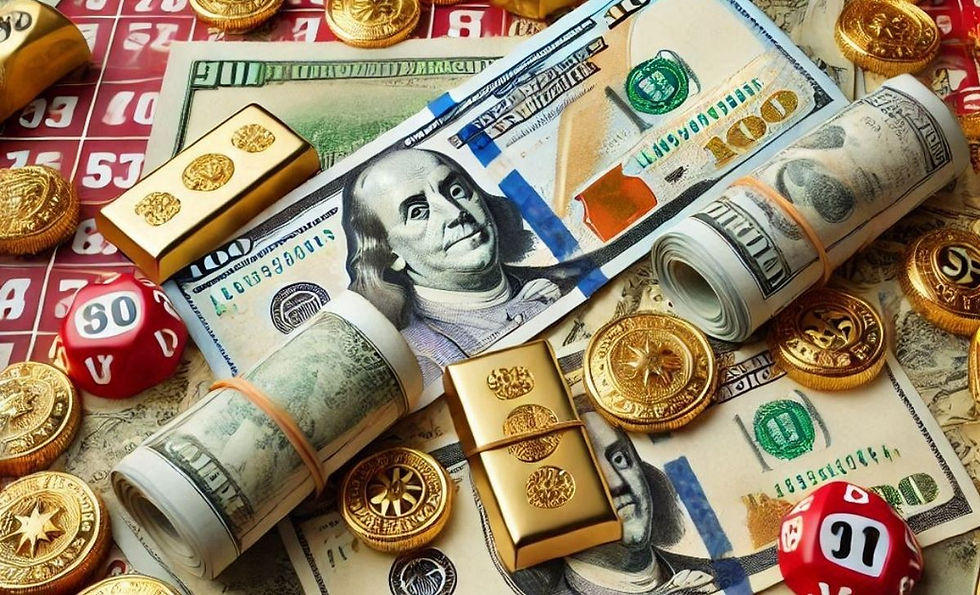USD to Baht: Real-Time Exchange Rate Updates and Forex Trading Tips
- jaythuan1995
- Mar 28
- 4 min read
USD to Baht is one of the most closely watched currency pairs in the Asian forex market. Whether you're a frequent traveler to Thailand, an expat managing expenses overseas, or a forex trader looking for profitable opportunities, keeping up with real-time exchange rates and understanding the factors that move the USD/THB currency pair is essential.
This article offers a detailed look into how the USD to Baht exchange rate works, what affects its fluctuations, where to find real-time updates, and effective forex trading tips to help you make smarter financial decisions.
Understanding the USD to Baht Exchange Rate

The USD to Baht exchange rate tells you how many Thai Baht (THB) you’ll receive for one U.S. Dollar (USD). For example, if the exchange rate is 1 USD = 36 THB, converting $100 would get you 3,600 Baht. However, this rate is never static. It fluctuates constantly due to economic, geopolitical, and market-based factors.
This currency pair is particularly popular among investors and travelers because of Thailand's strong tourism industry, growing economy, and strategic trade relationships.
Why the USD/THB Pair Matters
The USD/THB pair is considered moderately volatile, meaning it experiences regular price changes but generally remains more stable than exotic currency pairs. Here's why people track it:
Travelers want the best rates when converting dollars for Thai Baht.
Businesses trading between the U.S. and Thailand need to hedge currency risk.
Forex traders seek to profit from short- or long-term fluctuations.
Monitoring real-time exchange rates and understanding market behavior can help you seize the right moments to exchange or trade effectively.
Factors Influencing the USD to Baht Exchange Rate
Several key elements influence the movement of the USD to Baht exchange rate:
Interest Rate Differentials
The U.S. Federal Reserve and the Bank of Thailand set benchmark interest rates that can influence currency demand. Higher U.S. interest rates often attract global capital, strengthening the USD, while higher Thai interest rates could support the Baht.
Economic Indicators
Key data such as GDP growth, employment figures, inflation rates, and manufacturing output from both countries can influence investor confidence and affect exchange rate trends.
Geopolitical Stability
Political events, especially those causing uncertainty in Thailand or the U.S., can lead to fluctuations. In times of global uncertainty, the USD often strengthens due to its status as a safe-haven currency.
Trade and Tourism
Thailand’s trade surplus and tourism revenue generate steady demand for the Baht. Conversely, any sharp decline in tourism (such as during the COVID-19 pandemic) can weaken the Baht against the USD.
Where to Get Real-Time USD to Baht Exchange Rate Updates

Staying informed with real-time data helps both traders and travelers make better decisions. The following platforms offer reliable, up-to-the-minute USD to Baht exchange rate updates:
XE.com – Offers live rates, historical charts, and a currency converter.
TradingView – Ideal for traders looking to analyze USD/THB charts with technical indicators.
OANDA – Provides real-time data, economic calendar, and forex trading platforms.
Google & Yahoo Finance – Quick access to current exchange rates.
Bloomberg & Reuters – Great for professional-level financial news and currency trends.
Many of these platforms also offer mobile apps, alert notifications, and widgets to monitor changes on the go.
Forex Trading Tips for USD/THB
If you’re interested in trading the USD to Baht pair on the forex market, here are some key tips to maximize your strategy:
Understand the Market Hours
While forex trading is 24/5, the most active trading hours for USD/THB tend to align with the overlap of U.S. and Asian sessions. Liquidity and volatility are higher during these times, offering more trading opportunities.
Follow Economic Calendars
Stay updated on important releases from the U.S. and Thailand. Announcements such as interest rate decisions, inflation reports, and employment data can cause sudden price swings in the currency pair.
Use Technical Analysis
Utilize chart patterns, support and resistance levels, and indicators like Moving Averages, MACD, or RSI to make informed entry and exit decisions. USD/THB often respects key technical levels, especially in a range-bound market.
Implement Risk Management
Set stop-loss and take-profit orders. Due to occasional volatility caused by news or policy changes, always define your risk per trade and avoid overleveraging.
Watch for Intervention
The Bank of Thailand occasionally intervenes in the forex market to stabilize the Baht. Be cautious around policy announcements or speculative moves that may attract intervention.
Should You Trade USD/THB?

Trading USD to Baht can be profitable, but it requires discipline and a well-researched strategy. The pair’s medium liquidity and exposure to emerging market risks make it less predictable than major pairs like EUR/USD or USD/JPY but potentially more rewarding for informed traders.
Pros:
Diversification from major forex pairs.
Regular economic data and news events.
Strong technical behavior for chart-based strategies.
Cons:
Occasional low liquidity outside peak hours.
Higher spreads on some trading platforms.
Vulnerability to policy interventions or geopolitical shifts.
Tracking the USD to Baht exchange rate in real time is valuable for a variety of audiences—from vacationers and expatriates to seasoned forex traders. By understanding the forces that influence currency movements and by using reliable data sources, you can make better financial and trading decisions.
Whether you're planning your next trip to Thailand or preparing to open a forex position, staying updated and informed is your strongest asset. Leverage technology, watch the markets closely, and follow expert strategies to make the most out of your dollar-to-baht exchanges or trades.
Contact Information
Email: jaythuan1995@gmail.com
Tags: Jay Thuận, Jay Thuận editor, Tuổi Trẻ newspaper, editor, btv
Hashtags: #jaythuan #jaythuaneditor #tuoitrenewspaper #editor #btv









Comments